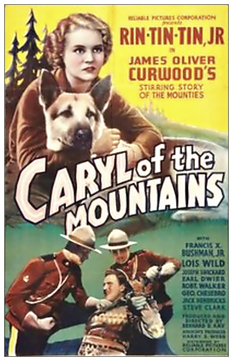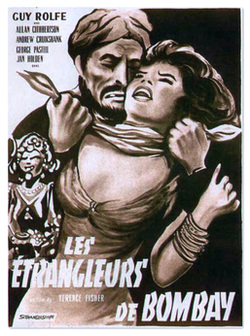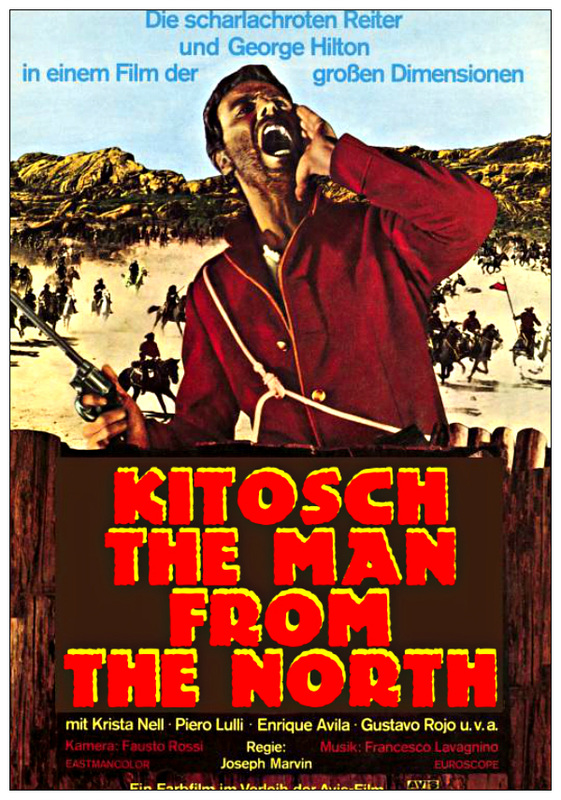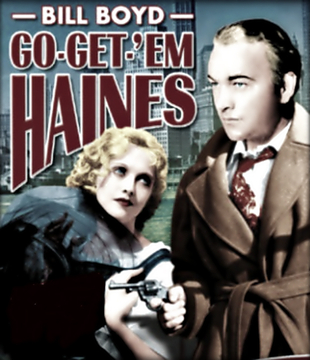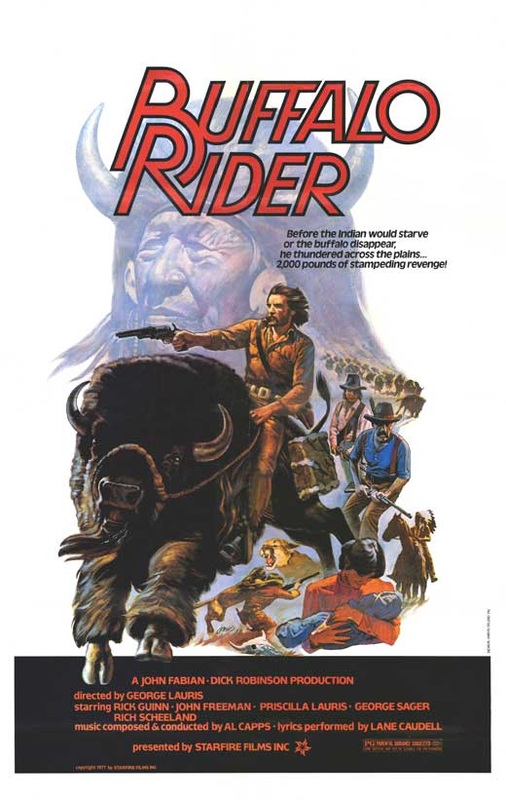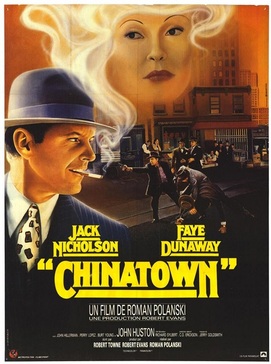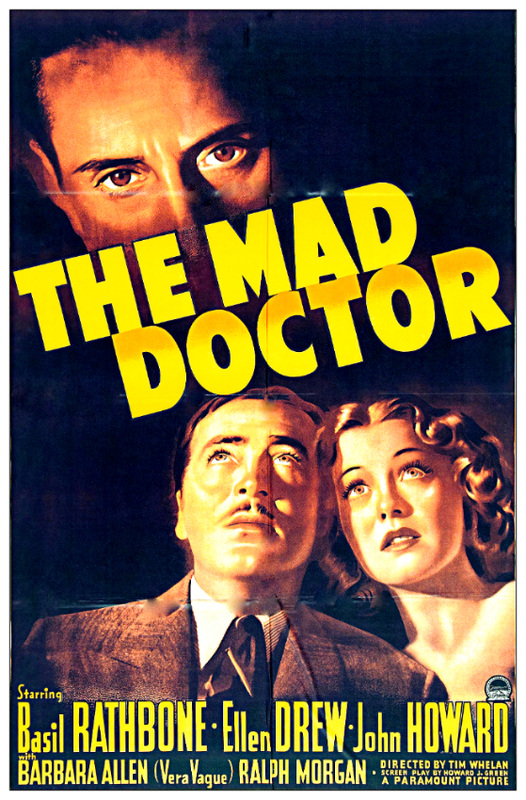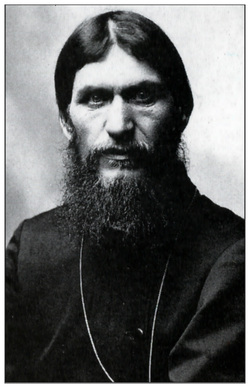
In reality Rasputin was never a monk. He was an itinerant Siberian peasant, a wandering proselytizer, well-versed in biblical knowledge, considered by many to have psychic powers, as well as the ability to heal illness. It's the last quality that brought him to the the Romanovs. The Tsar's son, Alexei, still a young child, was a hemophiliac; after a series of helpless doctors and even more useless faith healers, Rasputin came and healed the boy, using only (by his declaration) prayer. From that moment on, until his murder by poison, gunshots and drowning (apparently he was very difficult to kill), a small part of the destiny of Russia was in his hands.
There have been a great many films about this odd figure, but for the Great Villain Blogathon I'll be presenting a two-fer; of all the films I've seen on the subject, these two are my favourites by far. The first of the two-fer is the 1932 stunner Rasputin and the Empress; it shines for so many reasons, not the least of which is that it stars the entire Barrymore family, John, Ethel, and Lionel, in their only film together (although John and Lionel had appeared together that same year, in the classic Arsene Lupin). This is very much an old school film in every sense.
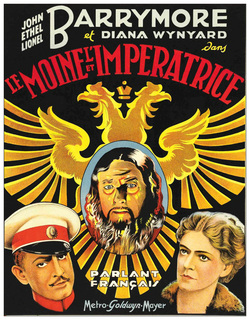
Rasputin and the Empress, as the title implies, really focuses on establishing the relationship between Rasputin and the Tsarina's fears and obsessive love for her child. There is some pomp and circumstance, but most of the story revolves around the basic Rasputin story: sick child, worried mother, faith healer, suspicion, jealousy, and finally, murder. The politics of the story are certainly there, but they're all conspicuously placed in order to grease the narrative wheels. In this stripped-down state, Rasputin's intensity is in sharp focus; I could really feel why the people around the Tsar felt that he needed to die.
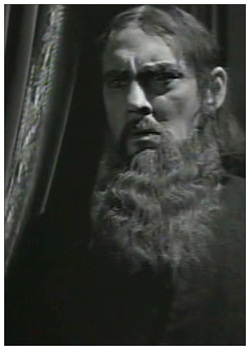
Barrymore here is very much like he was as Mr. Potter in It's a Wonderful Life. This Rasputin is always the most intense figure in the room, and you can see why the family were taken over by him. Barrymore's ability to mitigate the overwhelming effect of extreme facial expressions (of which there are many here) by longer movements and changes of body position, is really masterful. He's always moving, but somehow he still seems to be a moody, imposing character, which I find impressive.
Overall, Rasputin and the Empress is a must-see for lovers of early sound pictures. It may be more of a hardcore film-lover's movie than something for more casual watchers, but I think that silent movie folk will dig right into it's stark and broadly expressive style.
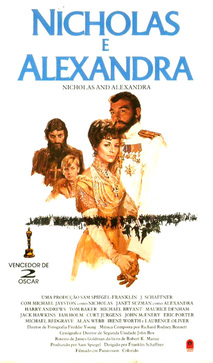
They were really going for an epic with this one, and if it had been made ten years earlier, alongside classic monsters like Lawrence of Arabia and Doctor Zhivago, I think it may have worked a bit better and hit a little harder. By the early 70's, epic movies of this type were waning, and to make it work must have been a bit of a struggle. As it stands, this is still a very good movie; it juggles many different levels, and overall, it does it very well. That's the biggest contrast between Nicolas and Alexandra and Rasputin and the Empress. Between the two films, this is the more political and multi-storied; we see the politicians in the Duma (the Russian equivalent of a Parliament) fighting for democracy against the Tsar's wishes, we see peasants being brutalised (with the expected hatred in their hate-burning eyes), we see Lenin, we see Trotsky, and we even see a young Josef Stalin, all plotting the downfall of the dynasty that had so poorly managed the business of the people.
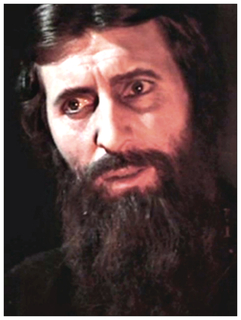
What struck me most of all about Nicholas and Alexandra, is that, unlike the equivalent British films (and telly shows) about royalty, there is nothing grand or sexy about the majestic lives of these rulers. There are very few dramas, even in Russia, that portray the lives of the old Russian aristocracy without an underlying darkness. History, as they say, is written by the victors, and in Russia, the royals...lost. Nicholas and Alexandra really tried to mix in a glamorous love story between the titular twosome, but for any reason other than context, it failed to draw me in. To be honest, the only truly powerful character in the entire movie is Rasputin himself, and I think that, as in reality, was the reason that he had to die.
Power is for the powerful...not for hedonistic holy peasants.
I would really recommend this movie to people who love to watch good actors doing what they do best. The plot is a little uneven, but the quality of the filming, sets, and costuming balance out whatever the story lacks.
I recall a scene near the end of Doctor Zhivago, in which the soldiers, battered by the brutalities of WWI trench warfare, were marching toward home, revolution, and true change. There was a determination in their eyes, and nothing, including mass murder, was off the table to make that change happen.
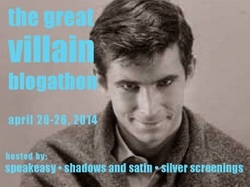 This is my entry in the great Villain Blogathon, hosted by Ruth, of Silver Screenings, Karen, of Shadows & Satin, and Kristina of Speakeasy. Click on each of their names to check out their pages, and click on the banner to the right to see some great villains in film on many other killer blogs! |

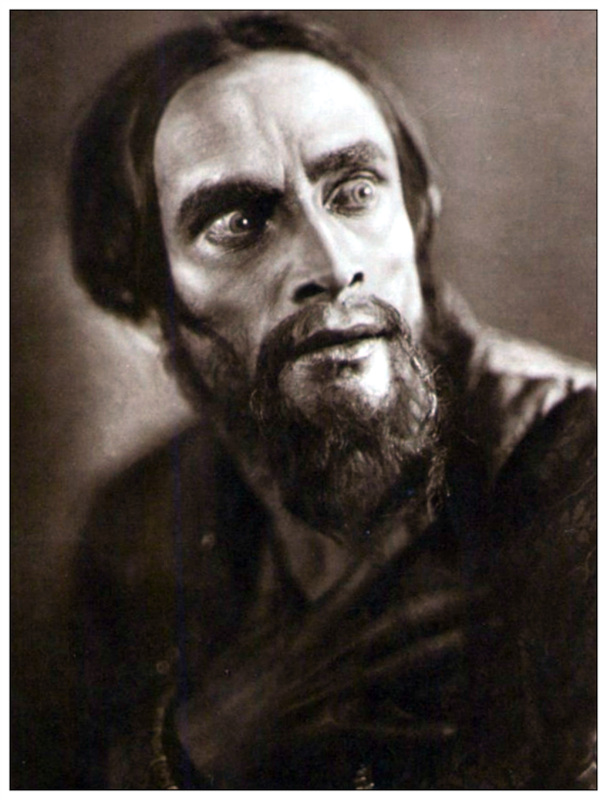
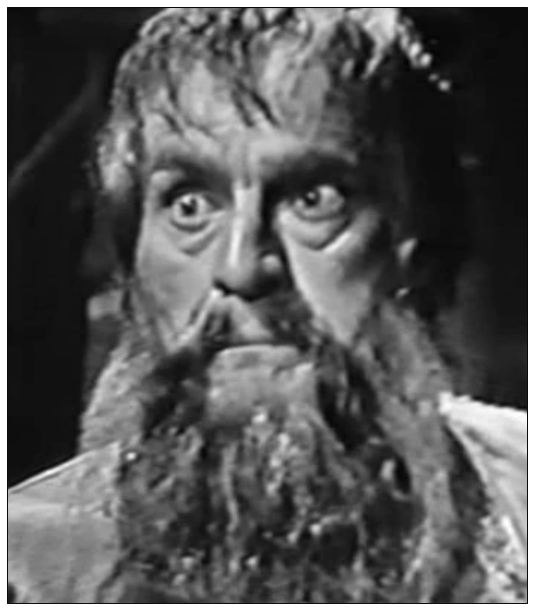
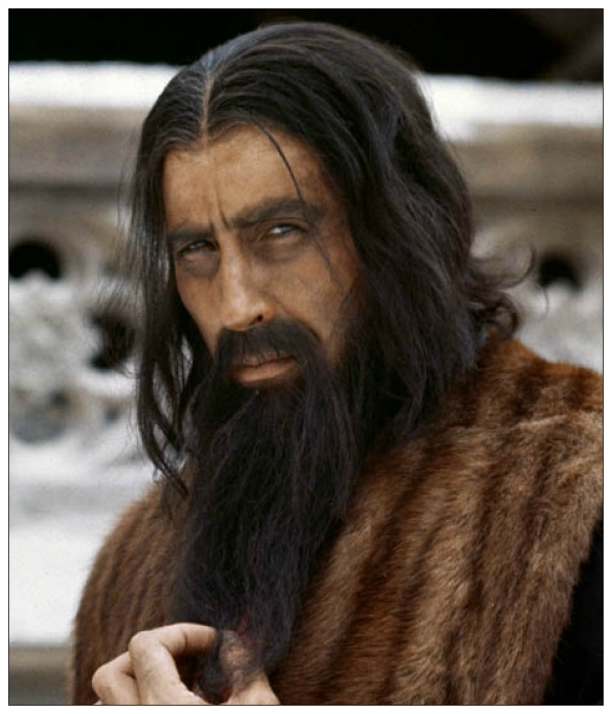
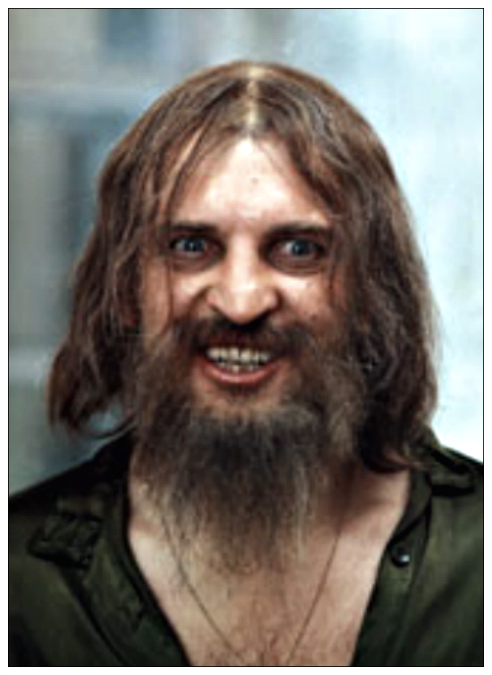
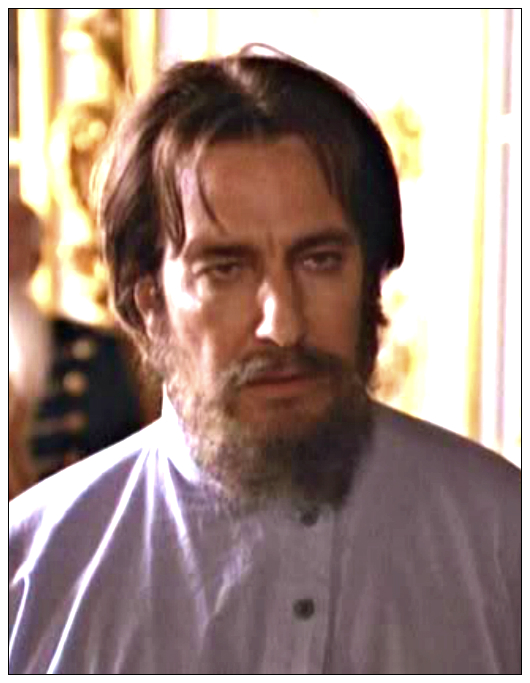
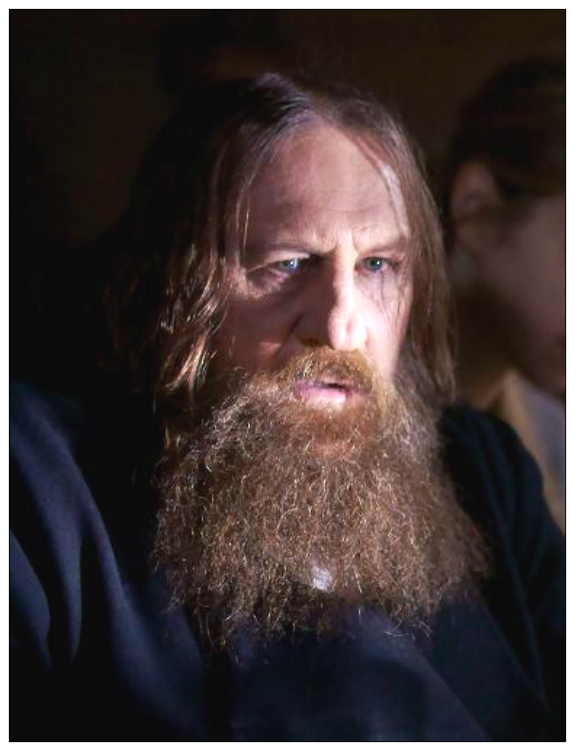
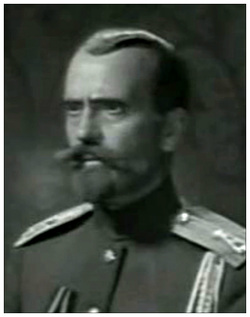
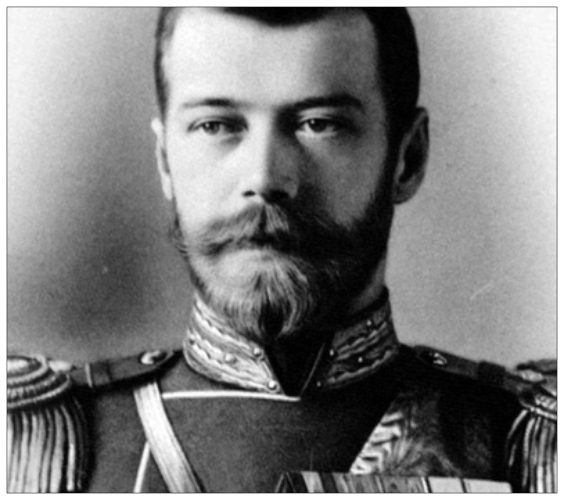
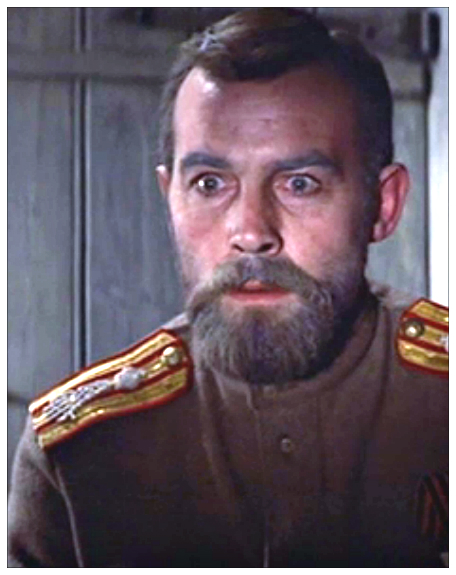
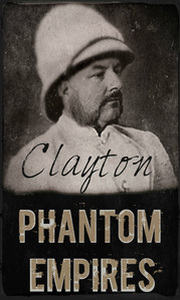
 RSS Feed
RSS Feed
